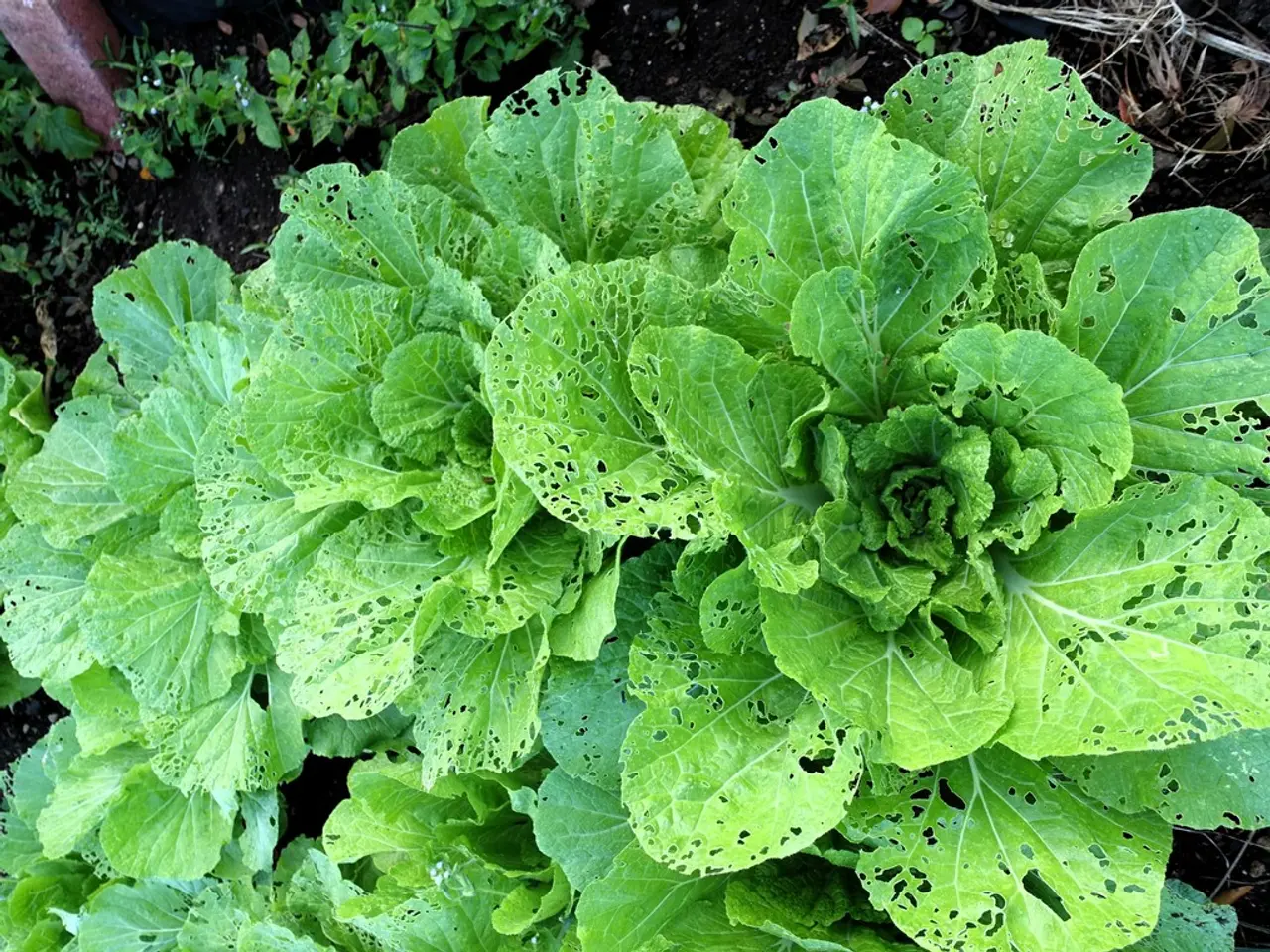Foods and Their Impact on Hair Loss
===================================================================
When it comes to maintaining healthy hair, your diet plays a crucial role. Here are some foods to include and avoid to help prevent hair loss.
Firstly, a balanced diet is essential for hair health and growth. Eating sufficient amounts of protein, vitamins, and minerals is vital. Protein sources that promote hair growth include cottage cheese, yogurt, beans, poultry, seeds and nuts, eggs, fish, and more.
Vitamins and minerals are equally important. For instance, folate, a form of vitamin B, stimulates the rebuilding of hair. Sources of folate include peas, beets, asparagus, and more. Similarly, vitamin C is necessary for the creation of hair shafts, and can be found in green, leafy vegetables, strawberries, and citrus fruits. Niacin, a B vitamin, is also essential for hair health, and can be found in salmon, tuna, marinara sauce, whole grains, peanuts, seeds, and more.
On the other hand, certain foods should be limited or avoided to help prevent hair loss. Highly processed foods that are high in sugar, salt, and additives can interfere with the body's ability to absorb vital nutrients essential for hair health. Foods containing trans fats, such as fried foods and many packaged snacks, promote inflammation, a known contributor to hair loss.
High-mercury fish like swordfish, mackerel, and tuna have been linked to hair loss. Instead, low-mercury fish such as salmon and sardines are recommended. Raw egg whites, which contain a protein that binds biotin and prevents its absorption, a vitamin essential for healthy hair growth, should also be avoided. Excessive alcohol consumption, which depletes vitamins and minerals critical for hair and immune function, worsens the hair loss risk.
Limiting dietary serine—an amino acid found in common foods like meat, grains, and milk—may impact hair follicle stem cell activity by directing resources away from hair growth toward skin repair during stress. However, this is a more complex and less directly established factor in everyday hair loss prevention.
A nutritious diet can affect many aspects of body function, including hair and scalp health. Unsaturated fats, such as those found in fatty fish, flax seeds, walnuts, and olive oil, hydrate the hair and may prevent hair loss. Conversely, fried foods and red meat could negatively affect hair health because they cause the overactivity of sebum and oil glands.
Some studies suggest that anti-inflammatory diets, such as the Mediterranean diet, can promote hair health and prevent hair loss. Additionally, biotin, a vitamin that can promote hair growth, can be found in egg yolk, sweet potatoes, salmon, sunflower seeds, almonds, and more.
Remember, it is normal to lose up to 100 hairs per day. However, males and females will typically lose more hair with age. Hairstyles that pull the hair back tightly against the scalp can cause permanent hair loss, and products for coloring, relaxing, or perming the hair can have damaging effects and may cause hair loss.
A diet severely lacking in calories, protein, or certain micronutrients may sometimes cause a type of hair loss called telogen effluvium. Quitting smoking may help reduce the risk of hair loss, as nicotine may speed up the progression of hair loss. Eating a diet rich in nutritious foods can improve hair loss, while eating high quantities of unhealthy foods or insufficient amounts of nutritious foods could worsen hair loss.
The FDA still recommends eating 2-3 servings of fish per week due to its high nutritional value, but advises sticking to fish low in mercury. Reducing the intake of mercury-rich fish can help improve hair loss.
Sources:
[1] Nutrition and Hair Loss: What to Eat and Avoid. (n.d.). Retrieved from https://www.healthline.com/health/food-nutrition/hair-loss-diet
[2] Hair Loss: Causes, Symptoms, and Treatments. (2020). Retrieved from https://www.mayoclinic.org/diseases-conditions/hair-loss/symptoms-causes/syc-20375971
[3] Diet and Hair Loss: What to Eat and What to Avoid. (2019). Retrieved from https://www.healthline.com/nutrition/foods-to-eat-and-avoid-for-hair-growth
[4] The Truth About Hair Loss and Diet. (2019). Retrieved from https://www.aad.org/public/diseases/hair-scalp/hair-loss/diet-and-hair-loss
- A balanced diet is key for optimal hair health and growth, ensuring consumption of sufficient protein, vitamins, and minerals.
- Protein sources that boost hair growth include cottage cheese, yogurt, beans, poultry, seeds and nuts, eggs, fish, and more.
- Folate, a form of vitamin B, stimulates rebuilding of hair, and sources include peas, beets, asparagus, and more.
- Vitamin C is essential for hair shaft creation, found in green, leafy vegetables, strawberries, and citrus fruits.
- Niacin, a B vitamin, is necessary for hair health, found in salmon, tuna, marinara sauce, whole grains, peanuts, seeds, and more.
- Some foods should be limited or avoided to prevent hair loss, such as highly processed foods high in sugar, salt, and additives.
- Processed foods interfere with the body's ability to absorb vital nutrients essential for hair health.
- Foods containing trans fats, like fried foods and many packaged snacks, promote inflammation, a known contributor to hair loss.
- High-mercury fish like swordfish, mackerel, and tuna have been linked to hair loss; opt for low-mercury fish such as salmon and sardines.
- Raw egg whites, rich in a protein that binds biotin and prevents its absorption, should be avoided for healthy hair growth.
- Excessive alcohol consumption depletes vitamins and minerals critical for hair and immune function, increasing the hair loss risk.
- Limiting dietary serine, an amino acid found in common foods like meat, grains, and milk, may impact hair follicle stem cell activity during stress.
- Unsaturated fats, like those found in fatty fish, flax seeds, walnuts, and olive oil, hydrate the hair and may prevent hair loss.
- Anti-inflammatory diets, such as the Mediterranean diet, can promote hair health and prevent hair loss.
- Biotin, a vitamin that promotes hair growth, can be found in egg yolk, sweet potatoes, salmon, sunflower seeds, almonds, and more.




